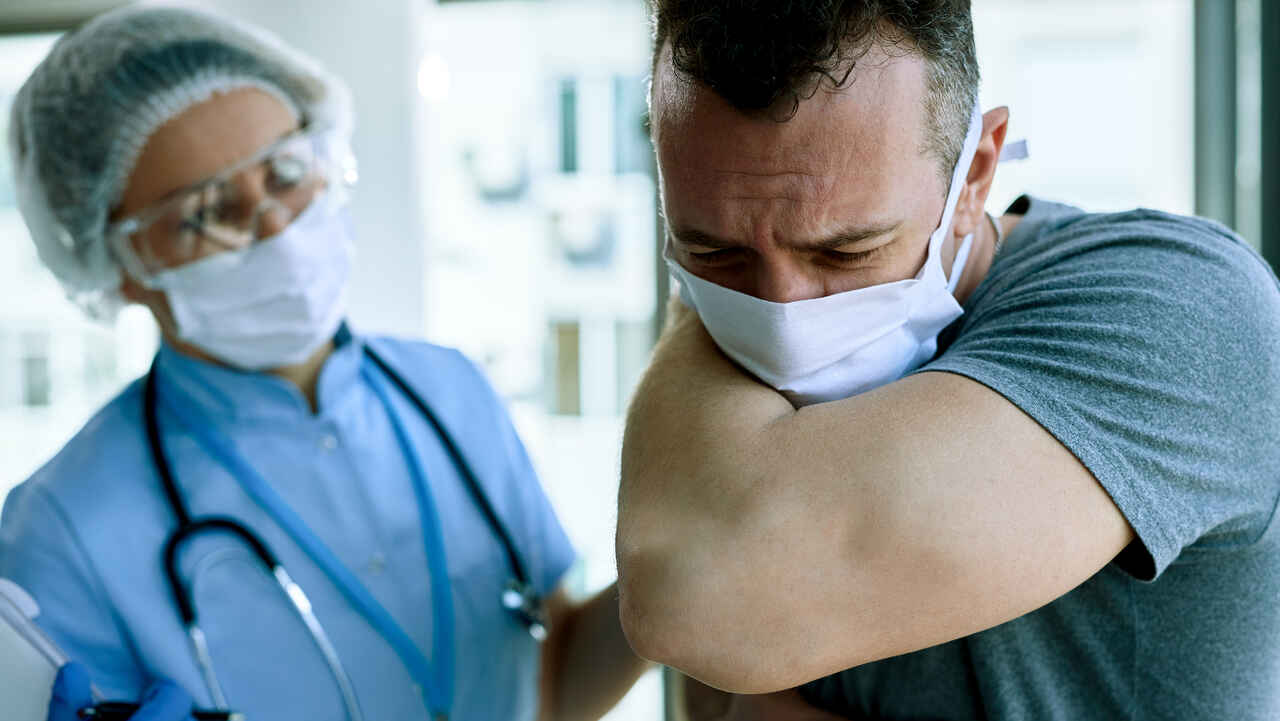 Know your risk so you can take precautions to avoid infection.
Know your risk so you can take precautions to avoid infection.
In the early days of the pandemic, very little was known about the novel coronavirus since doctors had not encountered it before. Now that medical researchers have had time to study the impact of the virus on patients around the world, we are gaining a better understanding of how it behaves and affects different populations.
A growing body of research shows that having certain underlying health conditions raises the risk of becoming seriously ill or dying from COVID-19. According to one study, some conditions may double or even triple the risk of death for COVID-19 patients. Understanding who is at an increased risk of serious complications helps doctors provide appropriate care and should give people with these conditions the incentive to take precautions to avoid infection as much as possible.
Read on for a list of conditions associated with COVID-19 complications and things you can do to stay healthier during the pandemic.
Conditions that Raise the Risk of Severe Illness from COVID
According to the Centers for Disease Control and Prevention (CDC), you have a higher risk of severe illness or death due to COVID-19 if you have one of these conditions:
-
-
- cancer
- chronic kidney disease
- chronic obstructive pulmonary disease (COPD)
- heart conditions, including heart failure, coronary artery disease or cardiomyopathies
- weakened immune system due to organ transplant
- obesity
- pregnancy
- sickle cell disease
- being a smoker
- type 2 diabetes
-
As more data become available, the list above is likely to change. According to the CDC, you might also have a higher risk of severe illness or death due to COVID-19 if you have one of these conditions (but more research is needed to know for sure):
-
-
- moderate to severe asthma
- cerebrovascular disease
- cystic fibrosis
- high blood pressure
- weakened immune system due to blood or bone marrow transplant, immune deficiencies, HIV, or use of corticosteroids or other medicines that weaken the immune system
- neurologic conditions, such as dementia
- liver disease
- overweight
- pulmonary fibrosis
- thalassemia
- type 1 diabetes
-
While the virus has hit adults much harder than children, some children become severely ill from the novel coronavirus. It’s still unclear what puts children at higher risk for the rare complication known as Multisystem Inflammatory Syndrome in Children (MIS-C). According to the CDC, these conditions might put children at higher risk for severe illness from COVID-19:
-
-
- obesity
- medical complexity
- severe genetic disorders
- severe neurologic disorders
- inherited metabolic disorders
- sickle cell disease
- congenital heart disease
- diabetes
- chronic kidney disease
- asthma and other chronic lung diseases
- immunosuppression due to malignancy or medications that weaken the immune system
-
How to Protect Yourself from Infection
While everyone should take precautions against COVID-19, it’s especially important for people with underlying conditions to avoid infection. If you have one or more of the conditions listed above, talk with your doctor about how you can safely manage your health during the pandemic. This might mean having your medications mailed to you, attending virtual medical appointments and avoiding going out in public or having family gatherings. You might also ask about how to keep up with routine screenings and what you should do if you’re not feeling well.
In general, it’s a good idea to:
-
-
- take medications as directed and keep at least a 30-day supply on hand
- stay up to date with flu and pneumonia vaccines
- seek timely care for medical problems
- exercise and eat well
-
Tending to your health and following COVID-19 prevention strategies (staying home as much as possible, frequently washing your hands, wearing a mask, avoiding crowds and keeping at least six feet away from others) helps lower your risk of getting COVID-19, whether or not you have underlying conditions that put you at a greater risk of serious complications from the virus.
Copyright 2020-2021 © Baldwin Publishing, Inc. All rights reserved.
Health eCooking® is a registered trademark of Baldwin Publishing, Inc. Cook eKitchen™ is a designated trademark of Baldwin Publishing, Inc. Any duplication or distribution of the information contained herein without the express approval of Baldwin Publishing, Inc. is strictly prohibited.
Date Last Reviewed: November 12, 2020
Editorial Review: Andrea Cohen, Editorial Director, Baldwin Publishing, Inc. Contact Editor
Medical Review: Perry Pitkow, MD
Learn more about Baldwin Publishing Inc. editorial policy, privacy policy, ADA compliance and sponsorship policy.
No information provided by Baldwin Publishing, Inc. in any article is a substitute for medical advice or treatment for any medical condition. Baldwin Publishing, Inc. strongly suggests that you use this information in consultation with your doctor or other health professional. Use or viewing of any Baldwin Publishing, Inc. article signifies your understanding and agreement to the disclaimer and acceptance of these terms of use.